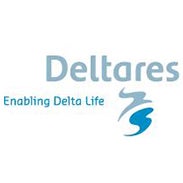Blood screened for five polymers
Researchers from VU, Deltares and Amsterdam UMC, location VUmc developed an analytical method to detect the trace level of micro- and nano-plastic particles in human blood. They examined the blood of 22 donors for the presence of five polymers, the building blocks of plastic. The extent to which the individual polymers were present in the blood was also determined. The research project Immunoplast, led by ecotoxicologist Heather Leslie and analytical chemist Marja Lamoree of VU Amsterdam, has been published in the scientific journal Environment International.
PET detected most
The overall concentration of plastic particles in the blood of the 22 donors amounted to an average of 1.6 µg/ml, which is comparable to a teaspoon of plastic in 1,000 litres of water (ten large bath tubs). A quarter of the tested donors had no detectable quantities of plastic particles of any type in their blood. Polyethylene terephthalate (PET), polyethylene, and polymers of styrene were the most common types of plastic found in the blood samples, followed by poly(methyl methacrylate). Polypropylene was also analysed but the concentrations were too low for an accurate measurement.
Health risks
Further research is required to determine the health risks. For example, how easy it is for these particles to move from the bloodstream into tissues such as in organs like the brain. In the Netherlands, this follow-up research into possible adverse health effects and how they can be mitigated is being conducted by the MOMENTUM consortium, in which VU Amsterdam is a partner.



